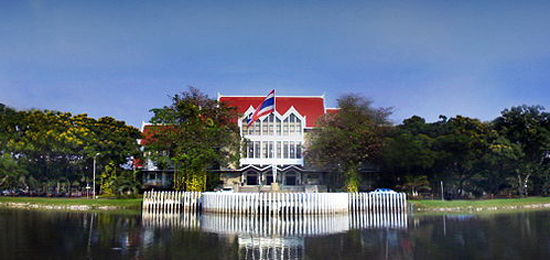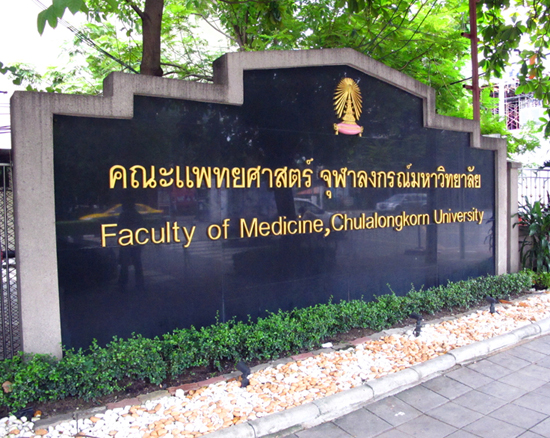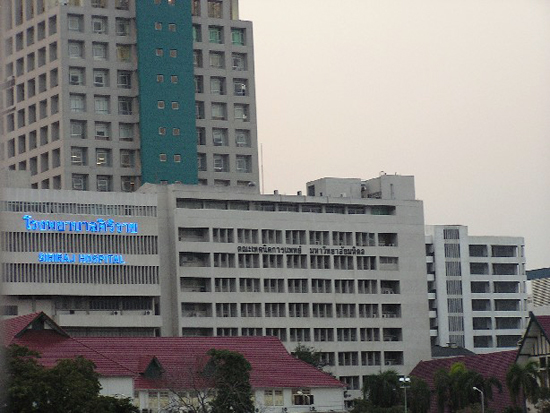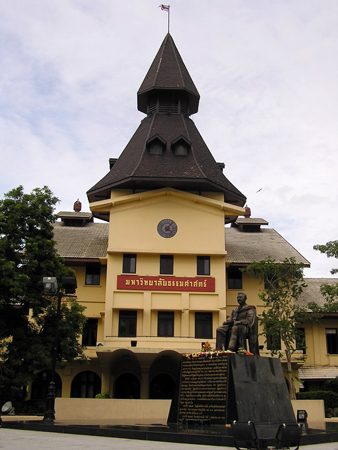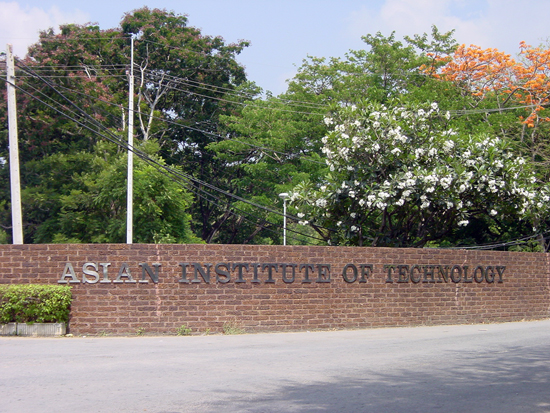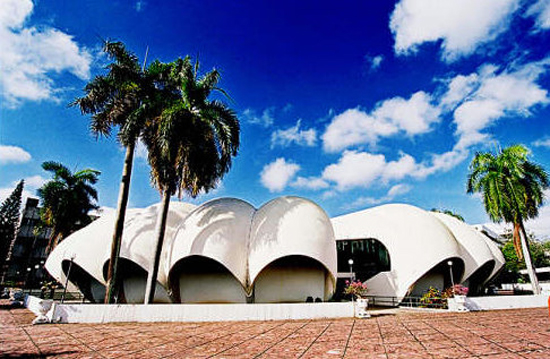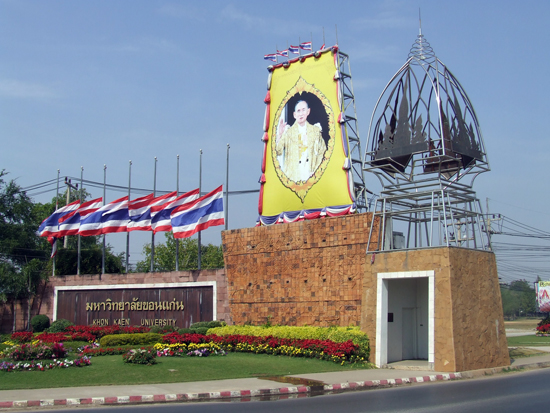Education: Higher Education
Thailand has 82 recognized universities comprising both public and private establishments. Details of some of the most significant are given below.
| School | Location (Main Campus) |
| Kasetsart University (KU) | Bangkok |
|---|---|
| Chulalongkorn University (CU) | Bangkok |
| Mahidol University (MU) | Nakhon Pathom |
| Thammasat University (TU) | Bangkok |
| Asian Institute of Technology (AIT) | Klong Luang |
| Prince of Songkla University (PSU) | Hat Yai |
| Ramkhamhaeng University (RU) | Bangkok |
| Khon Kaen University (KKU) | Khon Kaen |
Kasetsart University (KU)
50 Ngam Wong Wan Road
Chatuchak
10900 Bangkok Metropolitan Area
Thailand
Tel: [66] 2579 0133
Web: www.ku.ac.th
Kasetsart University (KU) is commonly referred to as Kaset. It was founded in 1943 as the country’s first agricultural sciences university. Over the years, the courses on offer were broadened to include many other disciplines, although the modern university is still considered the country’s top destination for studying agriculture, agro-industry, forestry, and fishery.
KU has expanded to seven campuses with 27 different faculties. Although most still offer agricultural related disciplines, teaching has expanded to cover science, arts, social sciences, humanities, education, engineering, veterinary medicine, and architecture.
Chulalongkorn University (CU)
254 Phyathai Road
Patumwan
10330 Bangkok Metropolitan Area
Thailand
Tel: [66] 2 2150 8713
Web: www.chula.ac.th
Chulalongkorn University (CU or ‘Chula’) was founded in 1917, which makes it the oldest university in Thailand. Widely regarded as one of the country’s most prestigious institutions, the university is named after Thailand’s King Rama V, also known as Chulalongkorn the Great. The royal connection was continued when Princess Maha Chakri Sirindhorn graduated from the university in 1977, becoming the first member of the Thai Royal Family to graduate from a Thai university. This was seen as a significant boost for the university and Thailand’s higher education system in general.
The university currently has 20 faculties and offers degrees across a range of disciplines. The most prestigious courses on offer are considered to be in the original disciplines of arts and sciences, public administration, engineering, and medicine.
Mahidol University (MU)
999 Phuttamonthon 4 Road
Salaya 73170
Nakhon Pathom Province 73170
Thailand
Tel: [66] 2849 6230
Web: www.mahidol.ac.th
Mahidol University (MU) was established in 1888 as Thailand’s first medical school, and health sciences are still considered the strength of MU. The medical school has since been incorporated into the university as the Faculty of Medical Sciences, and the institution has also expanded to other fields in recent decades.
The Bangkok School of Tropical Medicine, within the Faculty of Tropical Medicine, offers postgraduate programs from graduate diplomas to the doctoral level. The school is acknowledged and approved by the International Society of Travel Medicine and the American Society for Tropical Medicine and Hygiene as one of the top eight schools in the world for the study of tropical medicine.
Thammasat University (TU)
2 Prachan Road
Bangkok
10200 Bangkok Metropolitan Area
Thailand
Tel: [66] 2613 3333
Web: www.tu.ac.th
Thammasat University (TU) was founded in 1934 as the University of Moral Science and Politics. It introduced a highly competitive entrance examination in 1960 and is regarded as the most selective university in the country. Thammasat University offers specialized in courses in law, political science, commerce and accountancy, and economics, and counts many of the country’s prime ministers and senior politicians among its graduates.
Given its specialty in political science, Thammasat University has often been involved in Thai national politics. Its campus was the site of the 14 October 1973 uprising and the 6 October 1976 massacre, which were both significant pro-democracy protests in Thailand’s modern history.
Asian Institute of Technology (AIT)
58 Moo 9, Km. 42, Paholyothin Highway
Klong Luang
12120 Pathumthani
Thailand
Tel: [66] 2 524 6001
Web: www.ait.ac.th
The goal of the Asian Institute of Technology (AIT) is to promote technological change and sustainable development in the Asia-Pacific region. It was initially founded in 1959 as a graduate school for engineering disciplines and has become a widely respected postgraduate institute for the whole southern Asia region. The institute actively collaborates with public and private sector partners throughout Asia and other universities worldwide. Virtually all of its income is derived externally from this collaborative research work.
AIT consists of three schools, all offering postgraduate courses and conducting applied research. The schools cover the disciplines of engineering and technology, management and environment, and resources and development. In keeping with its regional profile, the institute has also opened campuses in Vietnam and Indonesia.
Prince of Songkla University (PSU)
15 Karnjanavanit Road
Hat Yai
90110 Songkhla Province
Thailand
Tel: [66] 7428 2000
Web: www.psu.ac.th
The Prince of Songkla University (PSU) was founded in 1967 when it became the first university to serve the southern half of the country. It is named after the father of the country’s long-standing king. PSU has four campuses in the cities of Hat Yai, Phuket, Pattani, and Surat. A smaller campus with just one faculty has also opened in the city of Trang. Hat Yai became the main campus, as there were concerns that high humidity at the other locations would lead to high maintenance costs for sensitive laboratory equipment.
There are 28 faculties in total, with the majority being located at Hat Yai, including all the scientific and engineering disciplines. Pattani is home to the second largest campus, where mostly humanities and political sciences programs are offered.
Ramkhamhaeng University (RU)
Ramkhamhaeng Road
Bangkok
10240 Bangkok Metropolitan Area
Thailand
Tel: [66] 2 310 8000
Web: www.ru.ac.th
Ramkhamhaeng University (RU) is described as an open university in that it has an open-door academic policy with no formal entrance requirements for new students. It was set up in 1971 in response to the high level of demand for higher education in the country that was not met by traditional universities. It has two large campuses, both based in the city of Bangkok.
The university is composed of the Faculties of Law, Business Administration, Humanities, Education, Science, Political Science, Economics, Engineering, and Education Technology. The Faculty of Engineering has had to limit number of students by imposing entrance requirements, but all other faculties are open to anyone who has completed high school and wishes to study.
Khon Kaen University (KKU)
123 Mitraparb Road, Muang
Khon Kaen
40002 Khon Kaen province
Thailand
Tel: [66] 43 202 059
Web: www.kku.ac.th
The Khon Kaen University (KKU) opened in 1964 to provide higher education for the northeast region of Thailand. It was initially founded as an institute of technology with engineering and agricultural courses offered, as these disciplines were key to the region’s economy. These two faculties remain the university’s largest, and have a long-standing social and sporting rivalry within KKU.
As the university has grown, additional faculties have been added; the total now numbers 17, in addition to a graduate school. As part of its agricultural background, Khon Kaen University has developed the Tropical Feed Resources Research and Development Centre (TROFREC). This has become the leading research center on feed resources and animal feeding in Asia.
Copyright © 1993—2025 World Trade Press. All rights reserved.

 Thailand
Thailand 